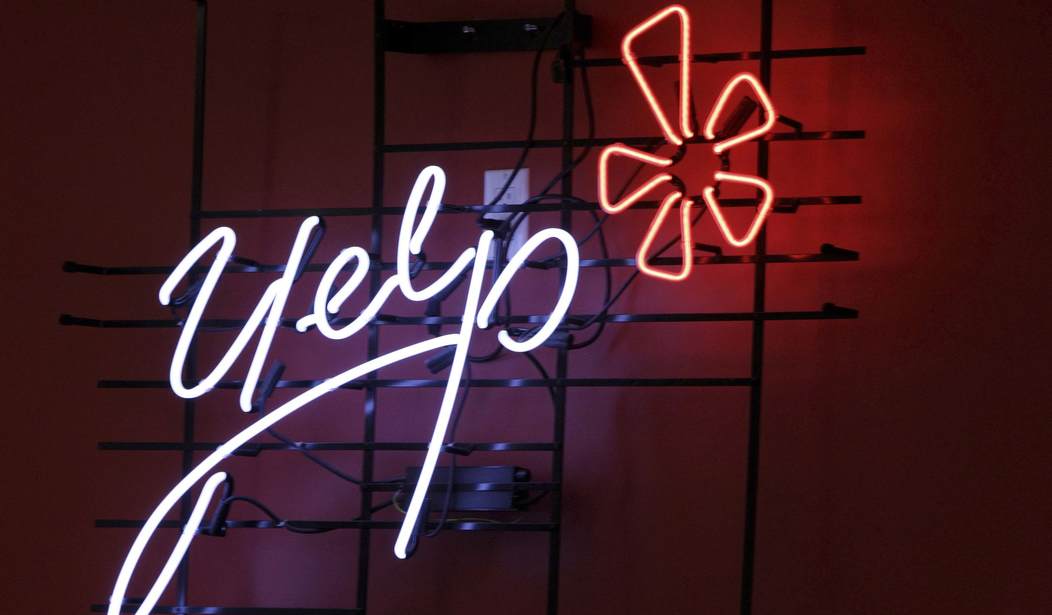The legal battle between Texas Attorney General Ken Paxton and Yelp, a company that publishes crowdsourced reviews about businesses, hasn’t even heated up yet, but it promises to be a rather interesting case.
A federal judge ruled Thursday that Paxton’s lawsuit against Yelp can proceed, which could have tremendous ramifications not only for the debate over abortion but also for how social media companies can handle the issue.
Paxton’s lawsuit focuses on a notice that Yelp puts specifically on listings for crisis pregnancy centers in Texas, according to Reuters.
A California federal judge has refused to shield Yelp from a lawsuit by the state of Texas accusing it of posting misleading notices about crisis pregnancy centers on its online review site.
U.S. District Judge Trina Thompson in Oakland, California, ruled Thursday that federal courts cannot interfere with state actions enforcing their laws unless they are brought in bad faith. She said that required her to dismiss a preemptive lawsuit Yelp had filed against Republican Texas Attorney General Ken Paxton last September in an effort to stop him from suing the San Francisco-based company for posting notices warning users that the centers provided limited medical services.
“To be clear, the court is not convinced that Paxton acted entirely in good faith in bringing this case against Yelp; still, Yelp has not provided enough concrete evidence of his subjective motivations to prove otherwise,” Thompson wrote.
“Yelp cannot mislead and deceive the public simply because the company disagrees with our state’s laws,” Paxton said in a statement.
“Yelp will continue to press forward to vigorously defend our constitutionally protected free speech rights to provide consumers with access to accurate information,” the company said in a statement.
Crisis pregnancy centers have been targeted by the pro-abortion lobby for decades. But the attacks intensified after the Supreme Court did away with the Roe v. Wade decision. Democrats have pushed legislation intended to further restrict them. Activists have carried out firebombings and other forms of vandalism against pro-life organizations. Paxton’s lawsuit contends that Yelp’s notice is intended to push users towards entities that provide abortions subtly.
After the Supreme Court upended nearly 50 years of precedent protecting a woman’s right to abortion with Dobbs v. Jackson Women’s Health Organization in June 2022, Yelp began including a notice on Yelp pages for crisis pregnancy centers for six months, from August 2022 to February 2023. The notice told users that crisis pregnancy centers “typically provide limited medical services and may not have licensed medical professionals onsite.”
Paxton, noting that Yelp did not have a similar disclaimer on clinics operated by Planned Parenthood, said the disclaimers “threaten to steer away hundreds of thousands, if not millions, of women and families who could benefit from using the services provided by pregnancy centers across the country.” The two parties then sued each other.
In a preliminary injunction hearing in November, a Yelp attorney said that the disclaimer was truthful, noncommercial speech that Paxton was seeking to censor.
This case reflects a broader debate over how social media companies are expected to handle hot-button political issues. Unlike other conversations over this issue, this one does not involve the idea that a company should be held accountable for what its users post. In this case, the sticking point is the fact that Yelp applied its own notice on crisis pregnancy centers. Those on the pro-abortion side often contend that these centers falsely portray themselves as abortion providers to lure mothers in and then convince them not to terminate their pregnancies.
The political bias here is evident. As Paxton’s lawsuit pointed out, there are no notices for listings related to Planned Parenthood and other abortion providers. While Yelp’s supporters might argue that it is necessary to ensure that their users are properly informed, it is clear that this is about steering people away from abortion alternatives.
The issue here is that Yelp originally applied a notice to crisis pregnancy centers that was clearly misleading. A successful lawsuit might send the message that trying to push people away from these organizations for political purposes won’t be tolerated.
On the other hand, those who oppose the lawsuit might argue that it could stifle free speech and set a dangerous precedent for the regulation of online content. Allowing the government to interfere with these matters would only lead to worse outcomes and a troubling expansion of the state.
It’s a tricky issue, to be sure. If the private crisis pregnancy centers had sued the company, they could possibly accuse it of defamation – telling users that they do not provide medical services when this is not the case. Whether or not such a lawsuit would succeed is a question that is above my pay grade.
Nevertheless, it is important to recognize that misinformation and disinformation remains an important issue when it comes to online discourse. The line between where the government should and should not be involved is a complicated question that will continue to be debated. Still, it remains clear that a company blatantly lying about specific industries for political purposes is not the desirable outcome.













